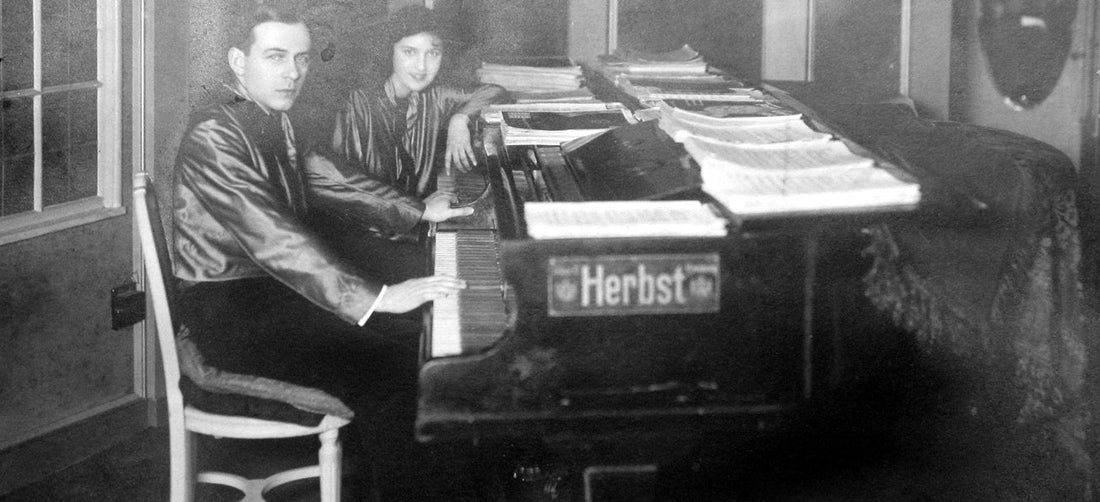It's a story as painful as it is fascinating: the life story of Anita and Egon von Buttlar, a German-Jewish musician duo who were forced to flee the horrors of National Socialism in the 1930s and 40s. With their book The Buttlars, Carla van Beers and Dirk Alberti not only reconstruct the journey of two artists who risked everything for their love and their music, but also provide a profound insight into the absurdities of a time when human closeness and creativity became dangerous.
Love and music as life anchors

"For the Buttlars, music fueled their love," explains Dirk Alberti. For Anita and Egon, it was far more than a profession—it was their purpose in life, a lifeline, and an expression of inner self-reflection. In a world where mixed marriages, music, and free love were forbidden, they clung to each other. "Why didn't Egon divorce Anita?" Alberti asks, and gives his own answer: "He didn't because he loved Anita more than anything and he believed that only with her could he overcome the difficult times."
This devotion allowed the couple to shine together on stage—while also constantly fighting for their survival. Their concerts provided solace to the audience while the ban on performing and the flight from country to country increasingly restricted their own space.
Exile between splendor and nightmare
Their journey into exile led them from Hamburg through Austria and Italy to the Netherlands. Their experiences in Hamburg, in particular, left a deep mark. "They lived just a few meters from the synagogue on Bornplatz and must have seen the flames and witnessed the hatred in the streets during Kristallnacht," the authors describe. What appeared to be a brilliant artistic career—with performances in major European cities—was in reality an odyssey full of fear, uncertainty, and loss.
After the war, the Buttlars enjoyed temporary recognition in the Netherlands, including a performance at the famous Boekenbal. But behind the applause lurked loneliness, psychological scars, and the feeling of no longer having a place in the modern musical world. "The life of an artist seems tempting," says Alberti, "but once the spotlight disappears, it also proves to be very lonely."
The “Golden Books” as a treasure of memories
A special source of their life story are the so-called "Golden Books," which Anita and Egon kept for decades. These are scrapbooks full of dedications, sketches, messages, and memories from friends and companions. The first was given to Egon in 1931 by the famous singer Richard Tauber. These albums are a priceless treasure today: they document not only artistic encounters, but also a life lived in the shadow of persecution and flight. "They are a precious testimony to a special time that cannot be expressed in money," the authors emphasize.
A book that connects past and present

Carla van Beers and Dirk Alberti succeed in writing a biography that touches, shocks, and at the same time inspires reflection on our present. "Are we aware of the times we live in today, and do we also see through the absurdity of life today?" they ask, thereby making it clear that the Buttlars' fate is more than a historical episode—it is a mirror that forces us to reexamine questions about freedom, love, and humanity.
The Buttlars is an invitation to look behind the shiny surface of music and success and to discover the complex lives of two people who, despite persecution, fear and exile, did not stop believing in their love and their art.
The book "Die Buttlars" is available in German language in the bookstores and from our publishing house, as a printed book (ISBN 978-3-910347-72-4) and as an EPUB (ISBN: 978-3-910347-73-1).
Blog article published in English in October 2025. Machine translated from German.




